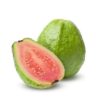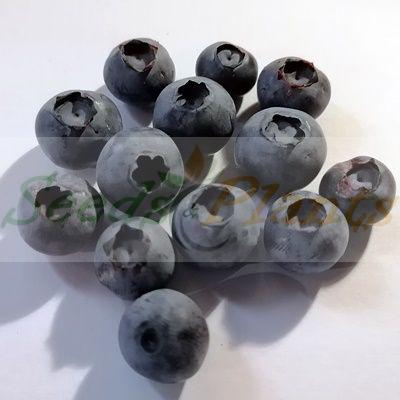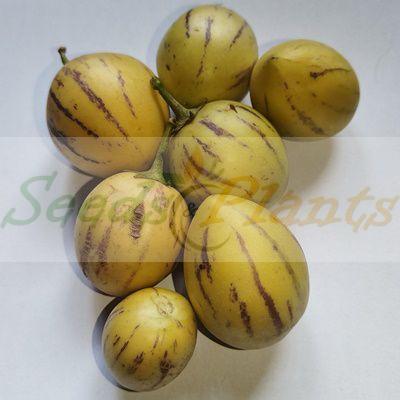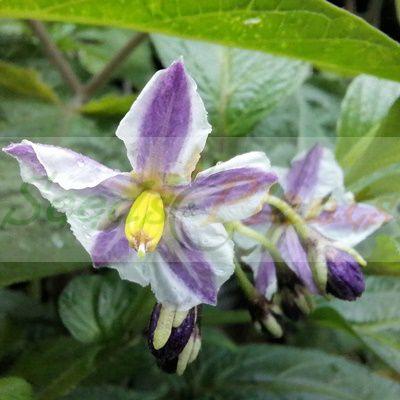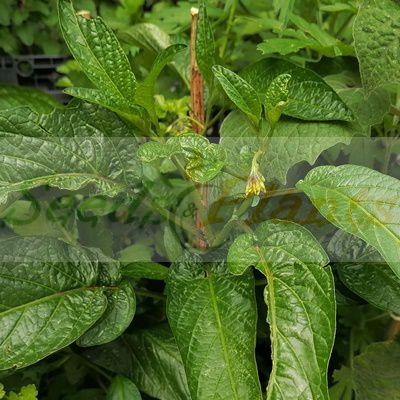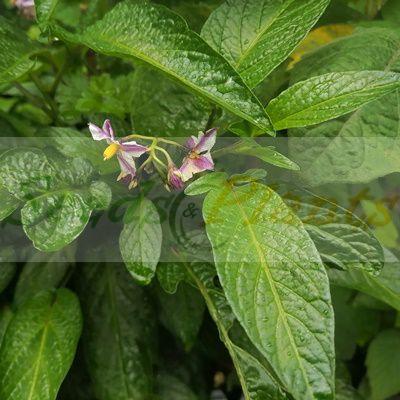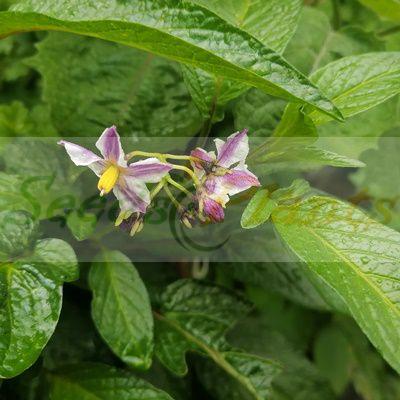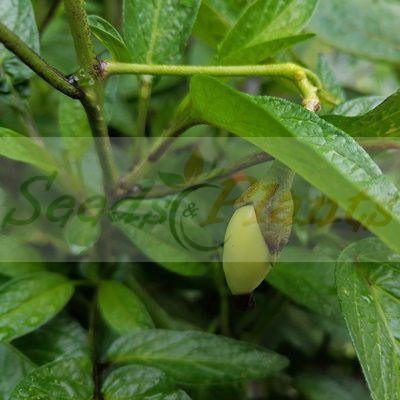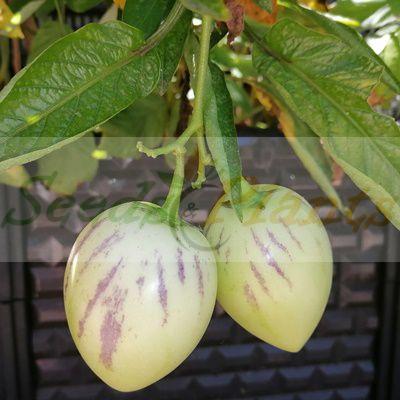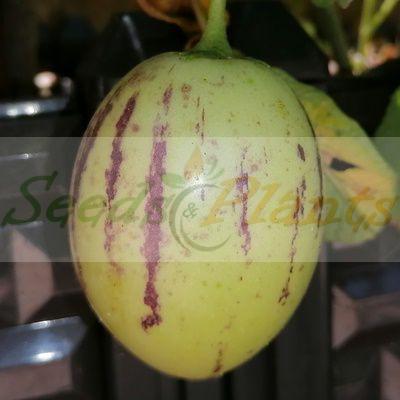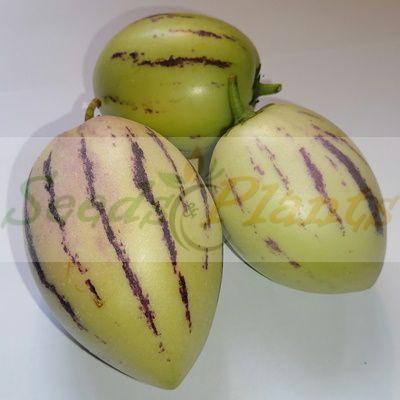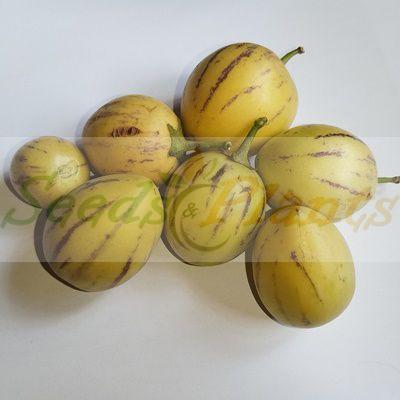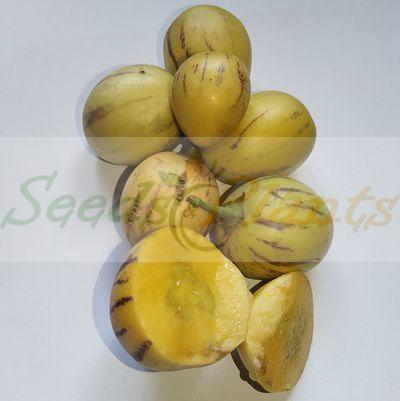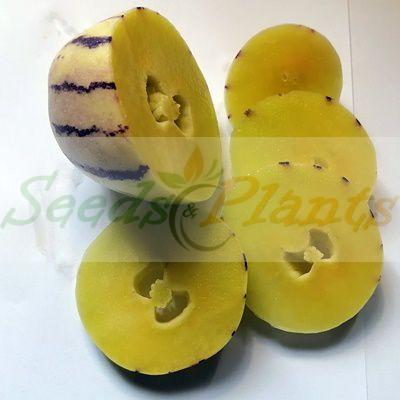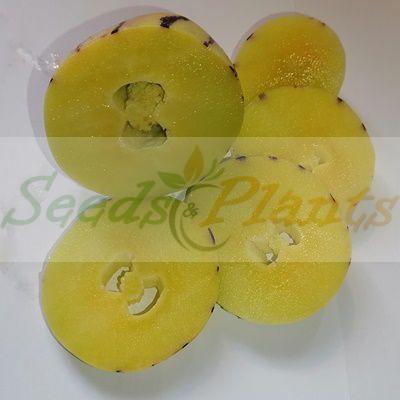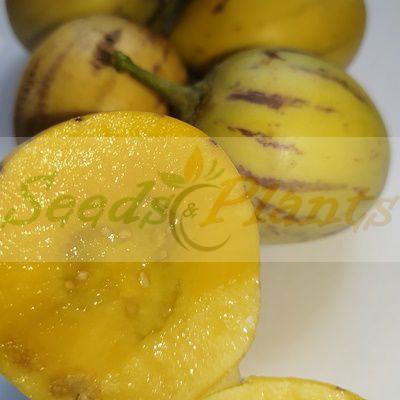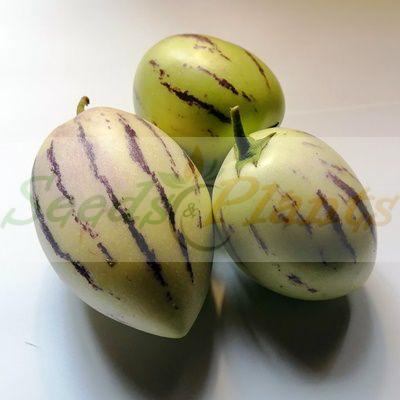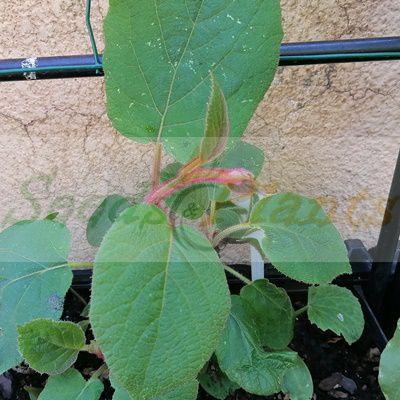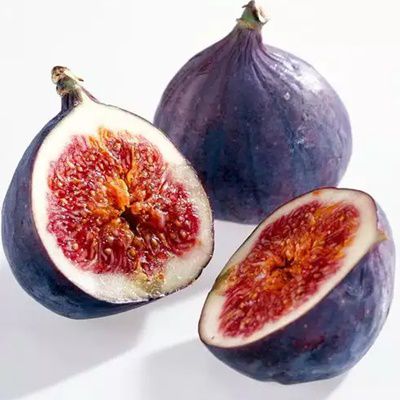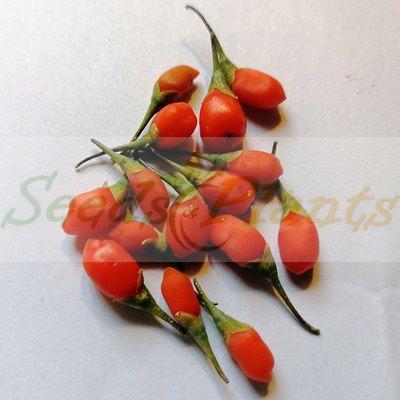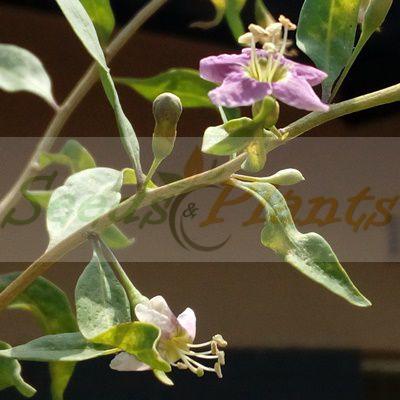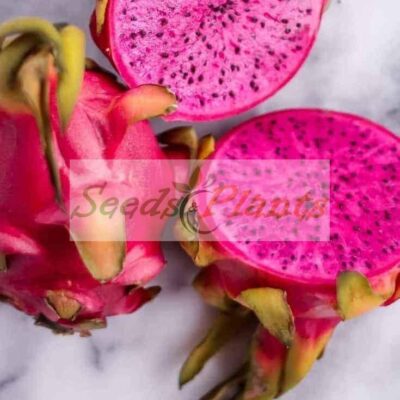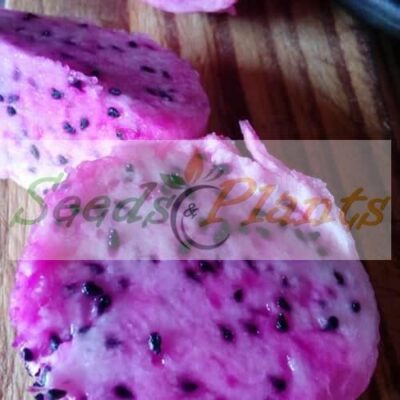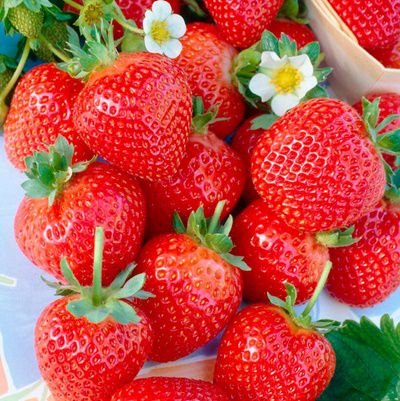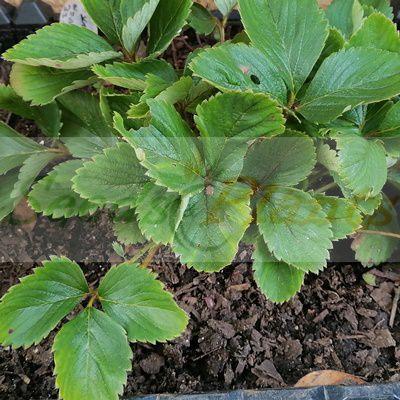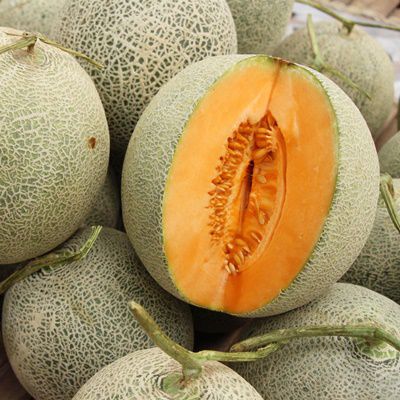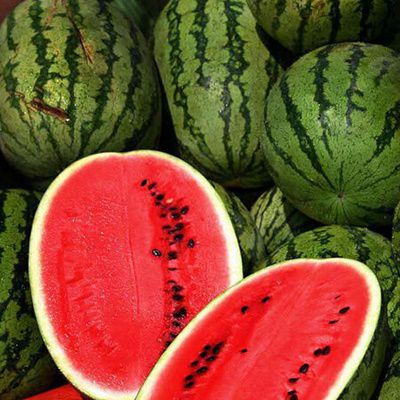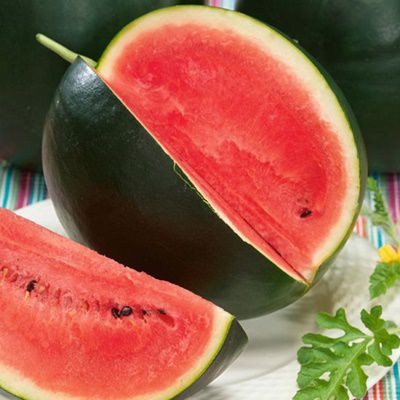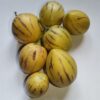🍒 Fruit Quick Facts
Fruit Info
- 🌍 Origin / Region: South America
- 🍽️ Culinary Use: Cucumber substitute, Curries, Jams and Jellies, Juices and Syrups, Raw Eating, Salads, Sauces
- 🥗 Edible Part: Fruit, Seed
- 😋 Flavor Profile: Mild, Slightly sweet
Growth Traits
- 🌱 Life Cycle: Perennial
- 🌾 Plant Type: Shrub
- 🔁 Fruiting Needs: Needs Only 1 Plant
- 🪴 Growth Habit: Bushy, Sprawling, Trailing
- 🌸 Flower Color: Bicolor, Purple-white
- 🌿 Foliage Type: Evergreen
- 📏 Mature Height: 0.6-1m
- 🦋 Pollinator Method: Attracts Bees, Attracts Beetles, Attracts Butterflies, Attracts Hoverflies, Attracts Moths, Attracts Wasps, Self-pollinating
Growing Requirements
- 🌞 Sun Exposure: Full Sun, Partial Shade
- 💧 Water Needs: Avoid Overwatering, Regular Water
- ☀️ Growing Conditions: Frost Sensitive, Low Cold Tolerance, Moderate Heat Tolerance, Not Drought Tolerant
- 🟤 Soil Preference: Compost Enriched, Fertile, Tolerant of most soils, Well-Drained
Pepino Melon – 10 Seeds
(Solanum muricatum)
R50.00
The Pepino Melon is a small, evergreen shrub native to South America and it bears purple flowers followed by deliciously sweet, smooth, oval shaped fruit.
Common Names: Pepino dulce, melon pear and tree melon.
Seed Type: Organic – Harvested from our own plants.
Indoor Sowing: Early Spring.
Direct Sowing: Spring.
Only 3 left in stock
🍒 Fruit Quick Facts
Fruit Info
- 🌍 Origin / Region: South America
- 🍽️ Culinary Use: Cucumber substitute, Curries, Jams and Jellies, Juices and Syrups, Raw Eating, Salads, Sauces
- 🥗 Edible Part: Fruit, Seed
- 😋 Flavor Profile: Mild, Slightly sweet
Growth Traits
- 🌱 Life Cycle: Perennial
- 🌾 Plant Type: Shrub
- 🔁 Fruiting Needs: Needs Only 1 Plant
- 🪴 Growth Habit: Bushy, Sprawling, Trailing
- 🌸 Flower Color: Bicolor, Purple-white
- 🌿 Foliage Type: Evergreen
- 📏 Mature Height: 0.6-1m
- 🦋 Pollinator Method: Attracts Bees, Attracts Beetles, Attracts Butterflies, Attracts Hoverflies, Attracts Moths, Attracts Wasps, Self-pollinating
Growing Requirements
- 🌞 Sun Exposure: Full Sun, Partial Shade
- 💧 Water Needs: Avoid Overwatering, Regular Water
- ☀️ Growing Conditions: Frost Sensitive, Low Cold Tolerance, Moderate Heat Tolerance, Not Drought Tolerant
- 🟤 Soil Preference: Compost Enriched, Fertile, Tolerant of most soils, Well-Drained
Pepino Melon (Solanum muricatum) belongs to the genus Solanum and is also known as pepino dulce, melon pears and tree melons. It is a fruit that is native to South America. It is not actually a melon as such, but instead the fruit of a small evergreen shrub and closely related to the nightshade family (the nightshade family includes tomatoes and eggplant). Pepino (Solanum muricatum) is perennial evergreen plant, grow in Mediterranean, subtropical, tropic climates. It grows well in South Africa’s climate as well.
Pepino Melon tree is a small, evergreen shrub bearing purple flowers followed by deliciously sweet, smooth, oval shaped fruit. The skin of the fruit turns light creamy-yellow with purple stripes when fully ripe. The entire fruit, including the skin, flesh, and small seeds, is edible when ripe.
The flowers of pepino plants are hermaphrodites, having both male and female organs, and are pollinated by insects.
Growing Pepino Melon
Indoor Sowing: Early Spring.
Direct Sowing: Spring.
- Pepino plants may be grown in sandy, loamy or even heavy clay soils, although they prefer alkaline, well-draining soil with an acid neutral pH.
- Pepinos should be planted in sun exposure and in moist soil.
- Sow the Pepino Melon Seeds in the early spring indoors or in a warm greenhouse.
- Once they have attained enough size to transplant, transfer into individual pots but keep them in the greenhouse for their first winter.
- Once they are a year old, transfer the pepino plants outside to their permanent location in the late spring or early summer after the danger of frost has passed.
- Protect from frost or cold temperatures. Overwinter indoors or inside the greenhouse.
- Pepino plants do not set fruit until the night temperatures are over 18 C.
- The fruit matures 30-80 days after pollination.
- Harvest the pepino fruit just before it is fully ripe and it will store at room temp for several weeks.
Can this plant be used for culinary purposes?
Pepino Melon is traditionally used for culinary purposes such as cucumber substitute and curries.
Disclaimer
Medicinal Information:
All medicinal information on this website is for educational and informational purposes only and may not be construed as medical advice. The information is not intended to replace medical advice or treatment offered by healthcare professionals.
Seeds, Plants, Plant Cuttings, Geophytes and Dried Herbs:
In some countries and provinces, certain plants are deemed as invasive and are not allowed to be planted at all, whilst some plants are allowed to be grown only in certain areas or provinces. The onus is on you as the buyer to familiarize yourself with the regulations pertaining to your location, before purchasing any of our seeds, plants, plant cuttings, geophytes or dried herbs. We will not be held liable, should you purchase any seeds, plants, plant cuttings, geophytes or dried herbs. from us which are prohibited in your country or province.

